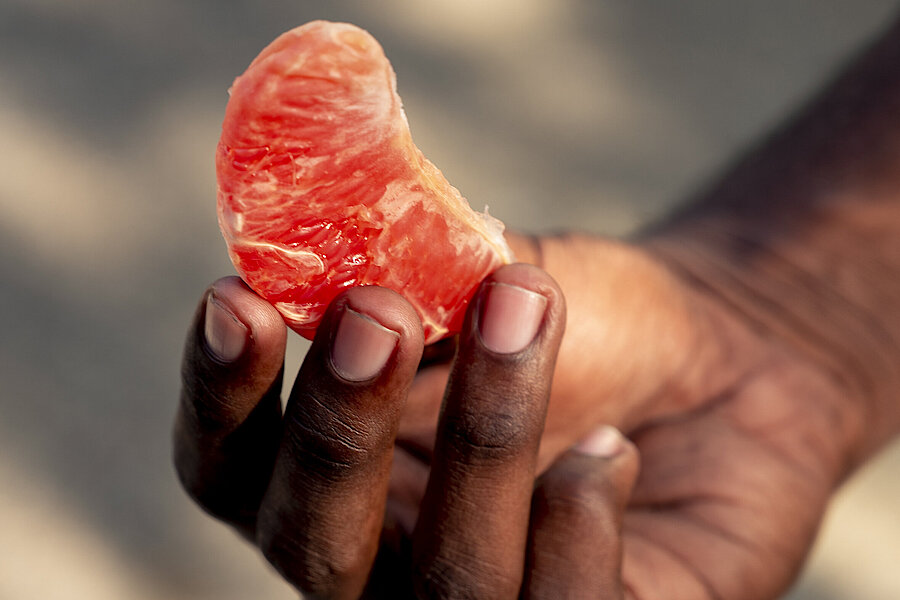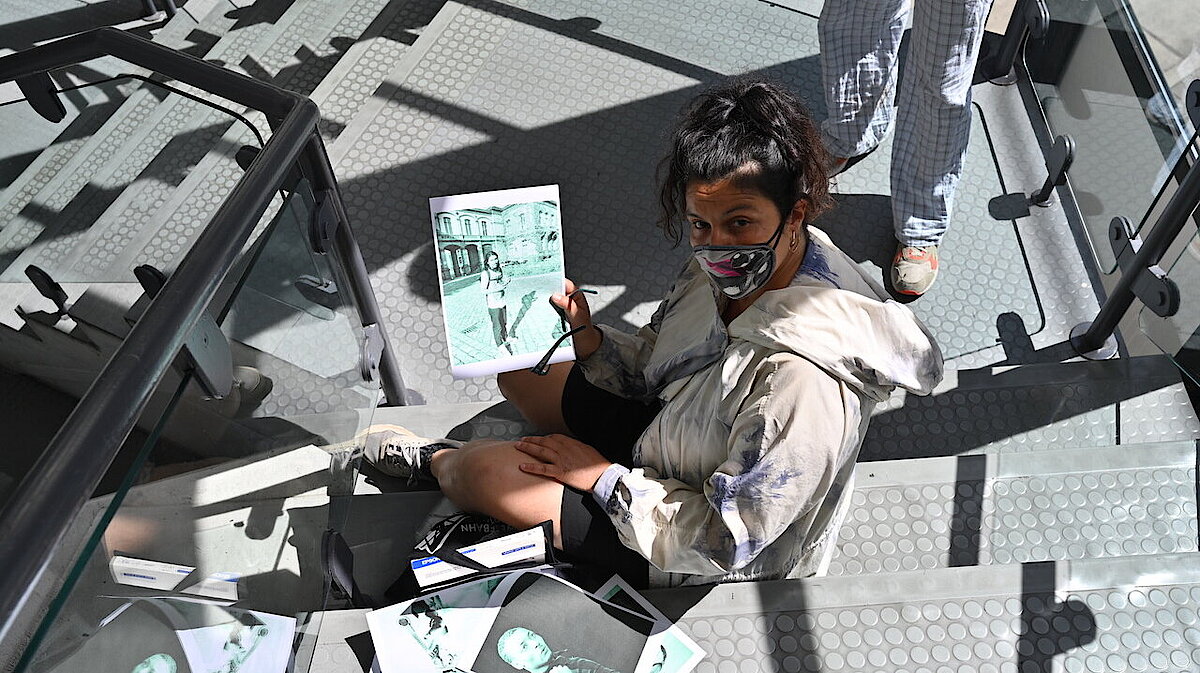


Dr Olusola John on the ITI dialogue series "Partners in or off the Ship? Creating space for dialogue on international partnerships"
Activist Alex D. Loo on the need for collective care, fear as a resource and dealing with conflict.
Anne Kleiner and Ann-Sophie Reiser talk to Bettina Sluzalek about the sustainability strategy of Theater der Welt in Frankfurt am Main/Offenbach 2023.
Ukhona Ntsali Mlandu's perspective on environmental sustainability focuses on concepts such as solidarity, care, hospitality and justice.
Nora Tormann in conversation with Carolina Mendonça about violence on stage, the conditions of safe spaces and new dramaturgies of transformation in the performing arts.
Anastasija Bräuniger, Faisal Kiwewa, Bettina Sluzalek and Malin Nagel reflect on the first edition of the ITI Academy and explore perspectives for the further development of the programme.
In this article, Prof. Dr. Leonard A. Cruz develops a proposal for an interactive workshop.
Dora Yuemin Cheng shines a light on the new generation of Chinese female theatre artists and their entanglement with digital reality in China.
Gemma Pörzgen, journalist with a focus on Eastern Europe, reflects on the role of theatres in times of war - both in the Ukraine and in Germany.
Sophie Diesselhorst in conversation with Anastasiia Kosodii, Maja Zade and Nina de la Chevallerie about the challenges and successes of collaboration between exiled artists and German stages.
Ukrainian theatre director and playwright Oleksandr Seredin talks about his experiences in the war and how it changed his attitude towards theatre and himself.
The Russian critic Alla Shenderova asks herself and colleagues in exile and in Russia about a possible future and what it means to be Russian now.
Ozi Ozar looks at the revolution in Iran, the expectations of life in exile and what institutions and theatre makers can do to support.
Turkey’s Artists at the Crossroads of New Aesthetic Practices and Political Subjectivities

Elisabeth Luft talks to Monika Gintersdorfer, winner of the ITI Prize Germany 2022, and the performer Carlos Martínez about the challenges and allure of transcontinental artistic work.
Bárbara Santos, founder of the Ma(g)dalena International Network and creator of the Feminist Theatre of the Oppressed methodology, reflects on feminist aesthetics as a starting point for artistic and activist work.
Almost a year and a half ago, Nora Amin was commissioned by the German Center of the International Theater Institute to conceive and curate the annual conference, with a special focus on equality and hybridity in transnational collaboration.
Dr. Lisa Gaupp explores how diversity and otherness could be curated without labeling, paternalizing, or exoticizing while at the same time taking into account the severe impact that neocolonial structures and practices of social inequality and exclusion have on the ambition to decolonize curatorial practices.
Dr. Nicola Scherer gave the keynote speech, excerpts of which are published here, at the ITI Academy Kick Off Weekend in December 2021.
International cooperations and coproductions with artists from Africa pose special questions and create challenges. For Kerstin Ortmeier and Martine Dennewald they are the motives to think about post-colonial curating.
Chiaki Soma, Programme Director, and Kyoko Iwaki, Programme Collaborator, talk to Jan Linders about their plans, curatorial concepts as well as the five strategies they have developed for Theater der Welt 2023.
In May 2021 Yvonne Büdenhölzer was voted in as the new president of the ITI. She and Thomas Engel talk to Andrea Zagorski about fractures and the impending challenges for transnational theatre work, with the ITI‘s international network in mind.